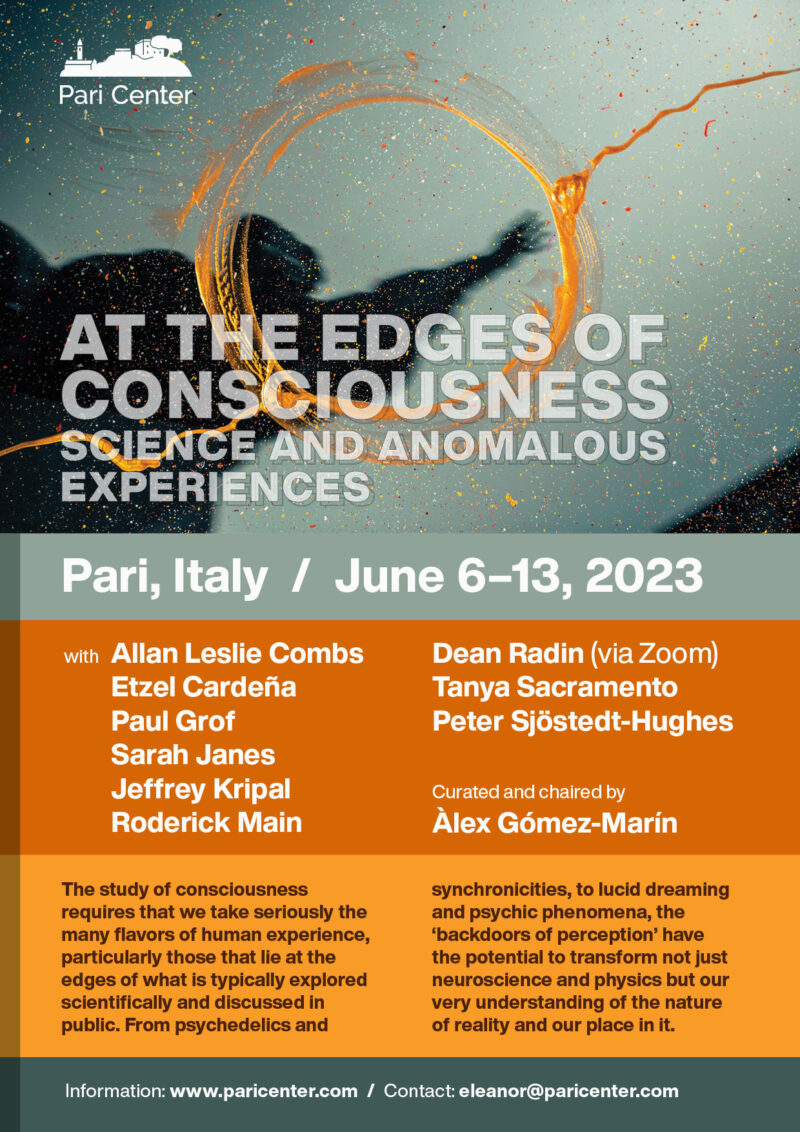Your cart is currently empty!
The Hermeneutics of Exceptional Experiences

This is an excerpt from one of the presentations featured in the Pari Center’s event At the Edges of Consciousness, in Pari from June 6 to 13, 2023.
with Roderick Main
A tremendous amount of energy has rightly been expended in attempting to assess the reality or otherwise of reported exceptional experiences, as well as in attempting to explain them, whether by currently accepted scientific frameworks or by alternative frameworks. However, in all this work, the question of the meaning of individual exceptional experiences often gets forgotten.
In this presentation, I focus on this arguably neglected question of meaning and the task of developing adequate interpretative approaches to the reported experiences. By way of example, I examine what was probably the most exceptional of C. G. Jung’s many anomalous experiences—his near-death experience and mystical visions of 1944, recounted in rich detail in Chapter 10 of Memories, Dreams, Reflections. After situating the experience in relation to contemporary literature on mystical and near-death experiences, I critically deploy Jung’s own analytical psychology—as a language that may be partly internal to the experience itself and in any case has been well honed by engagement with other exceptional experiences—to explore what the content and process of this experience might mean both individually and at various transindividual levels, including socially, culturally, environmentally, and spiritually.
The analysis is likely to reveal limitations as well as strengths of the Jungian hermeneutic and may suggest directions in which to develop more adequate approaches. But I hope the example will at least illustrate the general value of such hermeneutic approaches—including, interestingly, for eliciting from the content of the experiences themselves radical insights into the additional questions of their reality and explanation.

Roderick Main holds a BA and MA in Classics from the University of Oxford and a PhD in Religious Studies from Lancaster University. He now works at the University of Essex, where he is Professor in the Department of Psychosocial and Psychoanalytic Studies and Director of the Centre for Myth Studies. His books include Jung on Synchronicity and the Paranormal (1997); The Rupture of Time: Synchronicity and Jung’s Critique of Modern Western Culture (2004); Revelations of Chance: Synchronicity as Spiritual Experience (2007); Myth, Literature, and the Unconscious (2013); Holism: Possibilities and Problems (2020); Jung, Deleuze, and the Problematic Whole (2021); and most recently, Breaking the Spell of Disenchantment: Mystery, Meaning, and Metaphysics in the Work of C. G. Jung (2022).
